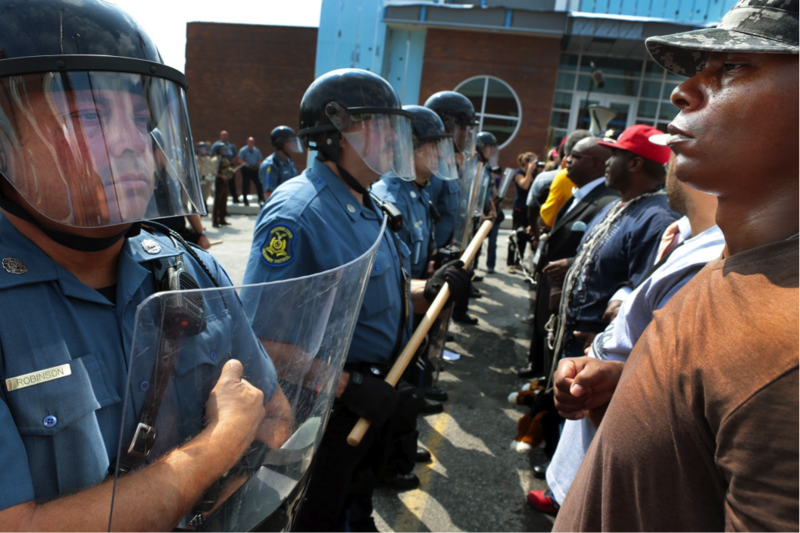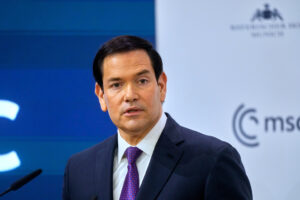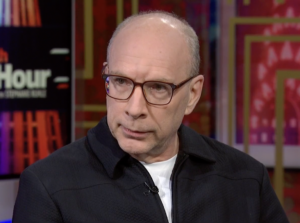What criminal justice can teach us about the primaries

Protestor Boss Bastain of St. Louis locks arms with others as they confront Missouri State Highway Patrol troopers in front of the Ferguson police station on Monday, Aug. 11, 2014. Marchers are entering a third day of protests against Sunday's police shooting of Michael Brown. Picture by Robert Cohen | AP Photo/St. Louis Post-Dispatch

Power is always partially underwritten by popularity, but modern democracies make the relationship official and exclusive. Popularity is the only widely accepted basis for authority, and elections are the legitimizing vehicles that quantify popularity and then convert it into power.
But what happens when the integrity of such elections becomes suspect, when the vehicle for legitimacy sputters like a well-meaning but overexerted Volkswagen—a potent symbol that cannot survive the trials of reality?
The modern American election is an embattled, half-hearted, unpopular affair. Few congressional elections in the United States draw more than 30 percent of eligible voters, city and local elections’ turnout frequently hovers in the teens, and even the relentlessly advertised and reported presidential elections rarely pull more than 65 percent of the nation to the polls.
And can you blame us for not showing up? The 2016 primary season is walking on a tightrope between a flashy circus spectacle and brutal, rhetorical war. Personalized character attacks have debased both victim and aggressor, and debates on policy often boil down to flurries of accusations that all participants, except the person speaking, are being intentionally disingenuous and should be ashamed of their behavior.
Vacuous and off-putting national elections are nothing new—the diversity and vastness of the audience requires candidates to emphasize symbolic rhetoric over substance. It’s impossible to speak, in detail, to the diverse needs of the American people. Thus, low voting rates have plagued our democracy for the past half century, and rancor-filled and combative elections for much longer. But now a new phenomenon is shocking even the most seasoned political observers and pundits: the sustained popularity of “radical” and “fringe” candidates—ones with speaking styles, beliefs, and sensibilities that should by all past measures disqualify them from being taken seriously as potential leaders of the free world. At first, leading media critics dismissed them as inconsequential. When their popularity ballooned, the same critics dismissed them as temporary flare ups. When, months later, their popularity continued to climb, the media wizards—those who pride themselves on intuiting the political pulse of this country—scratched their heads.
The two most dramatic examples of such “fringe” leaders are Democrat Bernie Sanders and Republican Donald Trump. Sanders has experienced a steady surge in popularity in the past months. After starting well behind Hillary Clinton in every poll, he is now leading her in some and catching up in many. Donald has dominated from the beginning, overshadowing the better-funded, supposedly better-advised, shoe-in establishment Republicans (I’m looking at you Jeb) with childlike glee. In the Iowa caucuses, the first official vote of the season, hyper conservative Ted Cruz, priding himself on continually foiling the plans of what he calls the “Washington Cartel,” carried the day for Republicans, with Trump coming in a strong second. On the Democratic side, Hillary outperformed Sanders by a vanishingly small margin, with major news outlets labeling it a tie well into the following day.
It feels like a time of political upheaval, like the established systems and procedures that have governed elections and politics are not only shifting, but are under attack. If low turnout rates signal public withdrawal from the democratic process, the rise of “radical” candidates may point to rebellion. Millions of marginalized Americans who previously felt subdued by their status are now becoming indignant.
Sanders and Trump have risen to the spotlight on the backs of millions of Americans who feel disrespected by the political establishment and the values it espouses, who feel that the game is rigged, that the system hasn’t treated them fairly. We can borrow criminal justice terminology to describe this phenomenon: American elections are suffering from an absence of procedural justice.
The term procedural justice has become popular among police forces across the country, as they make efforts to repair broken relationships with residents of high crime, usually minority-populated, low-income neighborhoods. In many such neighborhoods, innocent people expect warrantless stops by police, assume that murders that happen on their streets will go unsolved, that they will baselessly be treated roughly, with hostility. Neighborhood residents have learned from experience that the police will not afford them the basic dignities that are granted in other, whiter, more affluent neighborhoods. They feel, rightly so, that procedural justice has broken down.
A similar breakdown has happened in American elections. When political candidates lie, when they pander, when they dodge questions of vital importance to millions of people, American voters feel disrespected. Dignified people should not be duped or mislead, and when they are, they withdraw. Just as a man who has been chronically disrespected by police will not report a murder, a citizen who feels mislead by politicians will not vote. And catering to a small, privileged subset does not help. A recent report from Princeton and Northwestern University shows that the vast majority of government policy is guided by the needs and desires of Americans at the top 5 percent of the income distribution. Police and political representatives—the two most visible arms of Americans government—are visibly treating one part of the population with much more care and concern than the other. That “other” happens to include tens of millions of Americans.
Our representatives, like police, have a legitimacy problem. A problem mildly felt for decades, it is now being expressed more acutely by the unpredicted popularity of radical candidates like Trump and Sanders, both of whom are walking middle fingers to the standard operating procedure in Washington. When procedural justice breaks down, it is natural to look for ways to undermine the system that is failing to afford you the respect you believe you deserve. In troubled neighborhoods, that means adopting a “street code” and never cooperating with the police—in elections, it leads to either withdrawal or feverish support for the guy who attacks the system.
Andrew Tripodo studies American political theory at NYU and teaches high school civics at Democracy Prep Public Schools in Harlem. His research focuses on the relationship between citizens and the state in democratic governments.





well written Mr Tripodo
good insights ,what is the solution to re legitimize procedural justice in the underserved communities?